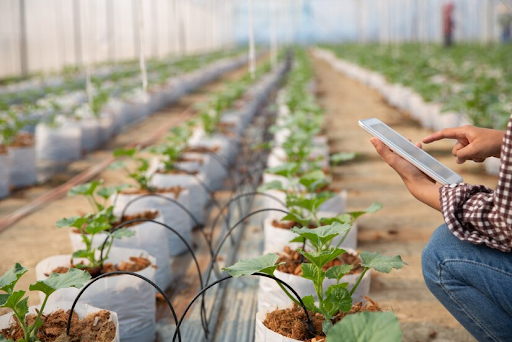The agricultural sector is evolving rapidly, with technological advancements paving the way for more efficient, cost-effective, and sustainable farming methods. Among these innovations, IoT-based irrigation systems have emerged as a game-changer for organic farming. These systems integrate sensors, cloud computing, and real-time data analytics to optimize water usage, improve crop health, and enhance sustainability.
With increasing concerns over water scarcity and climate change, organic farmers are under pressure to adopt the latest organic farming technology that not only conserves resources but also maintains the purity and sustainability of their farming methods. In this blog, we’ll explore how IoT-based irrigation works, its benefits, and why it’s essential for the future of the latest organic farming technology.
Understanding IoT-Based Irrigation Systems
IoT (Internet of Things) refers to the interconnectivity of devices and sensors that collect and exchange real-time data through the internet. In agriculture, IoT-based irrigation systems involve:
- Soil Moisture Sensors – Detect moisture levels in the soil and send real-time data to the system.
- Weather Sensors – Collect information on temperature, humidity, and rainfall to adjust irrigation accordingly.
- Automated Valves and Pumps – Control water flow based on sensor inputs, ensuring precise water delivery to crops.
- Cloud-Based Data Storage and Analytics – Stores and analyzes data to improve irrigation patterns over time.
By using these technologies, farmers can make data-driven decisions to optimise water usage, reduce dependency on manual labor, and minimise resource wastage.
Benefits of IoT-Based Irrigation Systems in Organic Farming
1. Water Conservation
One of the biggest challenges in farming is excessive water usage, which leads to resource depletion. IoT-based irrigation ensures that crops receive the right amount of water, reducing waste and conserving groundwater resources.
2. Enhanced Crop Health
Overwatering or underwatering can damage crops and lower yields. With real-time monitoring, IoT irrigation systems provide precise water distribution, promoting healthier crops and better yields.
3. Reduction in Manual Effort
Traditional irrigation requires farmers to monitor fields manually, which is time-consuming and labor-intensive. IoT automation reduces this burden by automatically adjusting irrigation based on real-time conditions.
4. Eco-Friendly Practices
Since organic farming avoids synthetic fertilizers and pesticides, maintaining optimal soil and plant health is crucial. IoT-based irrigation helps maintain soil integrity, prevent erosion, and support sustainable farming practices.
5. Cost Savings
Efficient water use leads to lower water bills, reduced electricity consumption (for pumping), and minimal need for additional fertilizers, ultimately reducing overall operational costs.
6. Climate Adaptability
Unpredictable weather patterns due to climate change make traditional farming challenging. IoT irrigation systems use weather data to adjust watering schedules, helping farmers adapt to changing climatic conditions.
Why IoT-Based Irrigation is Crucial for Sustainable Organic Farming
Organic farming prioritizes soil health, biodiversity, and minimal environmental impact. IoT-based irrigation aligns perfectly with these principles by:
- Minimizing soil degradation – Avoids overwatering, which can lead to nutrient loss and soil erosion.
- Reducing dependency on groundwater – Helps in sustainable water management.
- Enhancing productivity – Ensures optimal growing conditions for organic crops.
By integrating the latest organic farming technology like IoT-based irrigation, farmers can maintain high productivity without compromising sustainability.
The Future of IoT in Organic Farming
As technology continues to advance, the role of IoT in agriculture will only expand. Future trends in IoT-based irrigation may include:
- AI-Driven Irrigation Optimization – AI algorithms will analyze historical data to make predictive irrigation decisions.
- Integration with Renewable Energy – Solar-powered IoT irrigation systems will further enhance sustainability.
- Blockchain for Data Transparency – Blockchain technology can be used to ensure traceability of organic farming practices.
With the increasing need for sustainable food production, the latest organic farming technology like IoT-based irrigation will play a pivotal role in ensuring food security while preserving natural resources.
Conclusion
The integration of IoT-based irrigation systems in organic farming is not just a trend; it’s a necessity for the future. These systems offer significant advantages, including water conservation, cost savings, improved crop health, and enhanced sustainability.
As a leading tech-enabled agriculture platform, ASQI is committed to advancing sustainable farming solutions by leveraging IoT and other innovative technologies. By adopting the latest organic farming technology, farmers can enhance productivity, reduce environmental impact, and contribute to a more sustainable food system.







